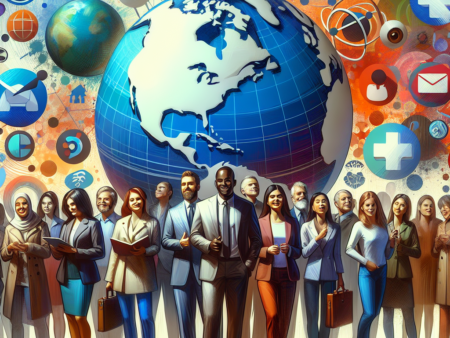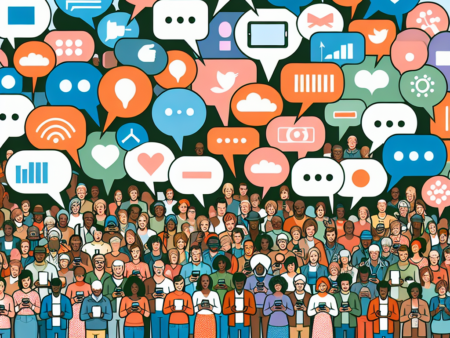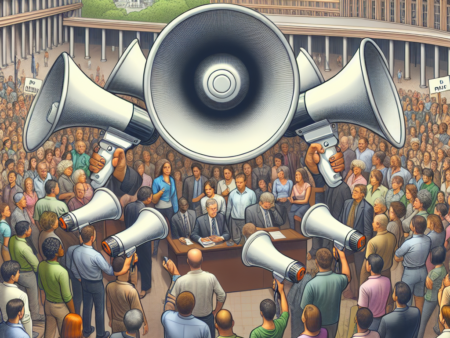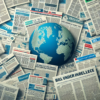Perubahan dan pergeseran opini publik di media massa yang dipengaruhi oleh berbagai faktor seperti berita, opini publik, dan pengaruh sosial.
Dinamika Opini Publik di Media Massa
-
Table of Contents
The Role of Mass Media in Shaping Public Opinion in Indonesia

Introduction
Public opinion plays a crucial role in shaping the political, social, and cultural landscape of any nation. In Indonesia, a country with a diverse population and a vibrant democracy, the media has emerged as a powerful tool in influencing public opinion. This article explores the dynamics of public opinion in the Indonesian mass media landscape, examining the role of media in shaping public perception, the challenges faced by media outlets, and the implications for democracy and governance.
The Power of Mass Media
Mass media, including television, radio, newspapers, and online platforms, have a significant impact on public opinion. They serve as a primary source of information and play a crucial role in shaping public perception. In Indonesia, where the media landscape has undergone significant transformations in recent years, the power of mass media in influencing public opinion cannot be underestimated.
Television remains the most popular medium in Indonesia, with a wide reach and influence. News channels, talk shows, and political debates on television have the power to shape public opinion on various issues. Similarly, radio programs, especially those that focus on current affairs and politics, have a significant impact on public opinion, particularly in rural areas where television penetration is lower.
Newspapers, both print and online, also play a vital role in shaping public opinion. While their readership has declined in recent years, newspapers still have a loyal following, especially among the older generation. Online news portals and social media platforms have gained prominence, particularly among the younger population, and have become important sources of information and opinion formation.
The Role of Media in Shaping Public Perception
The media in Indonesia plays a dual role in shaping public perception. On one hand, it serves as a watchdog, holding those in power accountable and providing a platform for diverse voices and opinions. On the other hand, media outlets often have their own biases and agendas, which can influence the way news is reported and framed.
Media ownership in Indonesia is concentrated in the hands of a few powerful conglomerates, which can lead to a lack of diversity in news coverage and perspectives. This concentration of ownership raises concerns about media independence and the potential for biased reporting. Journalists and media professionals face challenges in maintaining their editorial independence and ensuring balanced reporting.
Political affiliations also play a significant role in shaping media coverage and public opinion. Media outlets aligned with political parties or interest groups often promote their own agendas, leading to a polarized media landscape. This polarization can further deepen societal divisions and hinder constructive dialogue.
Challenges Faced by Media Outlets
Media outlets in Indonesia face numerous challenges that impact their ability to shape public opinion effectively. One of the most significant challenges is the threat of government censorship and control. While Indonesia has a relatively free press compared to some other countries in the region, there have been instances of government interference in media coverage, particularly on sensitive issues such as corruption or human rights abuses.
Financial constraints also pose a challenge to media outlets. Many newspapers and television stations rely on advertising revenue, which can compromise their independence and lead to self-censorship. Online news portals face the challenge of monetizing their platforms and generating sustainable revenue streams, which can impact the quality and diversity of news coverage.
Another challenge faced by media outlets is the spread of misinformation and fake news. With the rise of social media, false information can spread rapidly, leading to the distortion of public opinion. Media organizations have a responsibility to fact-check and verify information before disseminating it, but the fast-paced nature of news production can make this challenging.
Implications for Democracy and Governance
The dynamics of public opinion in the Indonesian mass media landscape have significant implications for democracy and governance. A well-informed and engaged citizenry is essential for a functioning democracy. When media outlets provide accurate and diverse information, they contribute to the formation of informed opinions and constructive public discourse.
However, when media outlets are biased or controlled, they can undermine democratic processes. Biased reporting can lead to the manipulation of public opinion and the consolidation of power in the hands of a few. It is crucial for media organizations to uphold journalistic ethics, maintain their independence, and provide balanced coverage to ensure a healthy democratic environment.
Furthermore, the polarization of media outlets aligned with political parties or interest groups can hinder constructive dialogue and compromise the ability to find common ground on important issues. Media organizations should strive to provide a platform for diverse voices and opinions, fostering a culture of open and respectful debate.
Conclusion
The dynamics of public opinion in the Indonesian mass media landscape are complex and multifaceted. While the media has the power to shape public perception and influence democratic processes, it also faces challenges such as government censorship, financial constraints, and the spread of misinformation. To ensure a healthy democracy, media organizations must uphold journalistic ethics, maintain their independence, and provide diverse and balanced coverage. By doing so, they can contribute to the formation of informed opinions and constructive public discourse, ultimately strengthening democracy and governance in Indonesia.







